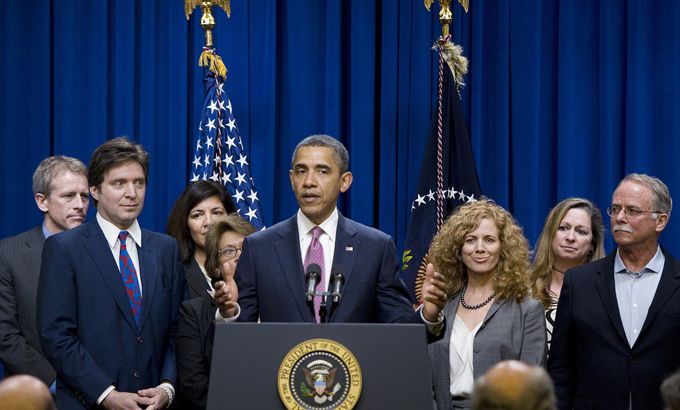
Are taxes fair in the US?
As Obama urges a new tax on wealthy Americans, we ask what less money for the super rich means for the rest of the US.
Barack Obama, the US president, says it is only fair. But Republicans say that increasing taxes on the country’s wealthy can only harm the economy. Inside Story Americas asks: What does less money for the super rich mean for the rest of the US?
Flanked by a group who call themselves the “patriotic millionaires,” Obama once again urged a new tax on wealthy Americans.
His proposal is called the Buffett Rule after the billionaire investor Warren Buffett who publicly complained that he pays less tax than his secretary.
Obama said it was time the richest Americans paid their “fair share” in taxes.
|
“I think that if you enact something like the Buffett Rule, you’re really increasing the taxation of investment …. [And] we need to realise that the Buffett Rule brings in very little revenue.“ – Alan Vaird, a former economic adviser to the Bush White House |
Of the Buffett Rule, Obama said: “[It] is something that will get us moving in the right direction – towards fairness, towards economic growth. It will help us close our deficit and it’s a lot more specific than anything that the other side has proposed so far. And if Republicans in Congress were truly concerned with deficits and debt then I’m assuming they wouldn’t have just proposed to spend an additional $4.6tn on lower tax rates, including an average tax cut of at least $150,000 for every millionaire in America.”
The proposal would set a minimum 30 per cent rate for those earning more than a million dollars a year.
The president also pointed out that one of his predecessors, the Republican icon Ronald Reagan, once called tax loopholes for the rich “crazy”.
That, however, is something that would sit uncomfortably with today’s Republicans, who vehemently oppose the plan and have even called it class warfare.
Indeed their rival plan would cut the tax rate on the super rich from 35 to 25 per cent – something enthusiastically endorsed by the probable Republican nominee and private equity tycoon Mitt Romney
And then there are also those who argue that the Buffett Rule does not go far enough in restoring historical tax codes and bridging the country’s ever-increasing wealth gap.
Inside Story Americas spoke to Professor Eric Schoenberg, one of the millionaires backing the Buffet Rule, and asked him to explain why he wanted to be taxed more. Here is some of what he had to say:
“There are two basic problems I would point to that the United States is facing now. The first is the government, ever since the Reagan administration with a narrow window during the Clinton administration, has spent substantially more than it has taken in in taxes. Many people in Congress are deeply concerned about these deficits and I share these concerns. We have to do something to get revenues more in line with government expenditures.
|
“This is an important first step towards comprehensive tax reform.“ – Andrew Fieldhouse from the Economic Policy Institute |
“The second problem that I think is a substantial one facing the United States is the growth of inequality. Now, Americans do not really have a huge problem with inequalities in wealth as long as there are equalities of opportunities. The problem is, I think, the degree of inequality of wealth has reached a stage where the opportunity is not there for as many Americans as possible ….
“I pay substantially lower taxes than a hardworking middle class American and I don’t think that’s fair ….
“When the wealthy become too powerful they do what it takes to protect their own interests and they make it much harder for people to gather new wealth themselves.”
So, are taxes fair in the US?
Joining Inside Story Americas with Shihab Rattansi to discuss this are: Alan Viard, a former economic adviser to the Bush White House; Andrew Fieldhouse from the Economic Policy Institute; and political journalist David Sirota.
| “The political benefit to President Obama is that the Buffett Rule inherently asks questions of Mitt Romney and how Mitt Romney made his money …. It’s not going to solve the national deficit, not even close – but it’s not nothing …. There is a symbolism to it and the symbolism is, as President Obama said, fairness; whether we want a tax system that essentially embodies and endorses unfairness.”
David Sirota, a political journalist |